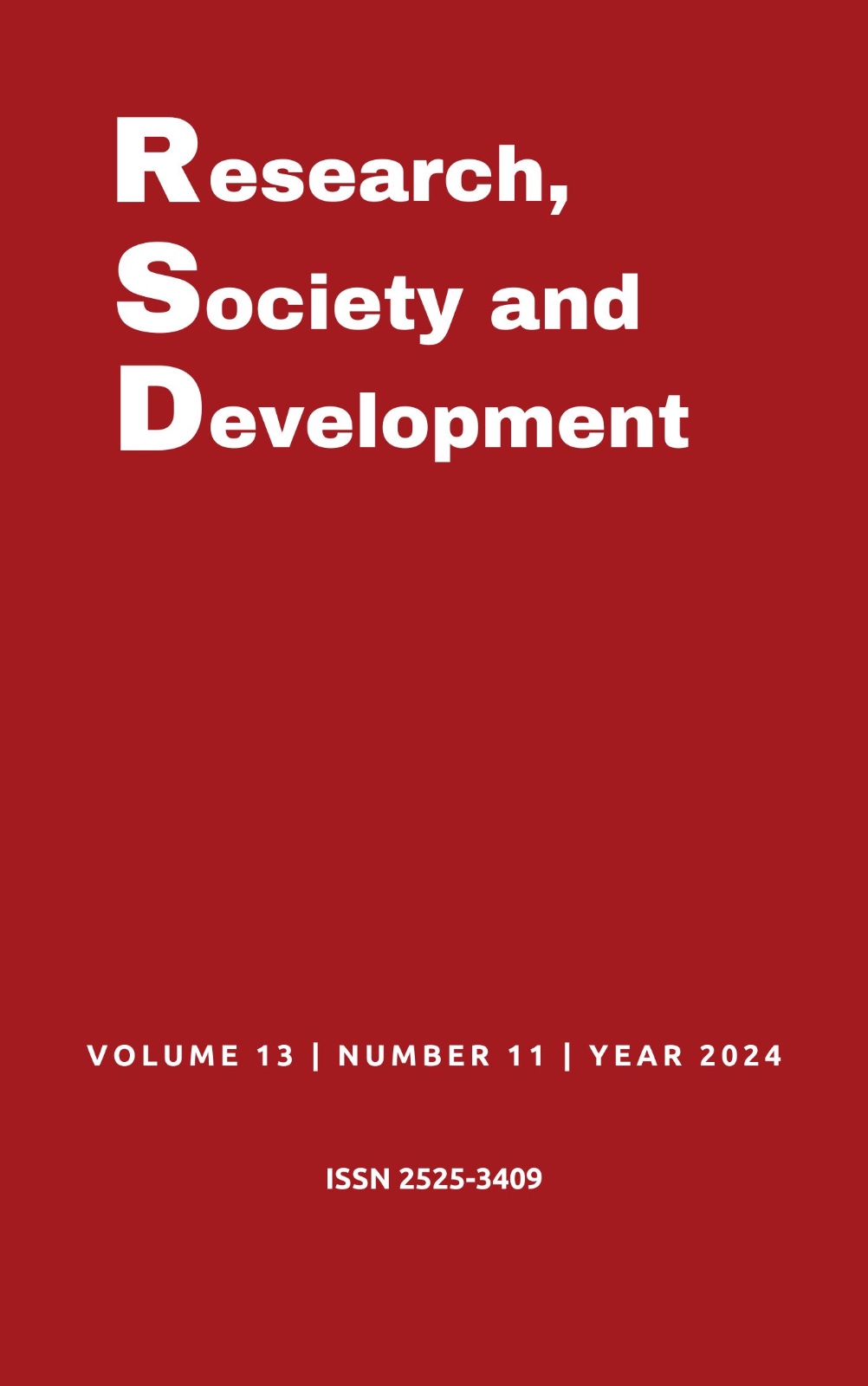Probability teaching in the training of Faculdade de Ciências e Tecnologia Dirson Maciel de Barros (FADIMAB) pedagogues
DOI:
https://doi.org/10.33448/rsd-v13i11.47414Keywords:
Probability, Initial and Final Years, Training, Teaching.Abstract
This article deals with a study that aimed to investigate the knowledge about the probability of a group of 45 students from the FADIMAB pedagogy course. A social survey was carried out and data collection took place through the application of a questionnaire with 12 structured questions (YES and No), aiming to characterize knowledge about probability in the undergraduate course in Pedagogy, offered by FADIMAB located in Goiana in Zona da Mata Norte. The data collected revealed the need to include disciplines and proposals that promote the study of concepts of probability combined with didactic-pedagogical training in the Pedagogy curriculum. Therefore, the National Common Curricular Base (BNCC) positions probability as one of the themes to be explored in the teachng of Mathematics throughout basic education, from the early years to high school. This ensures that students gradually become familiar with probabilistic concepts according to their age and level of cognitive development. It addresses probability within the area of Mathematics, providing guidelines for its teaching. It should be noted that it is urgent and essential to develop, with future teachers, a continuing training program on this topic.
References
Almeida, I. D. (2021). Metodologia do trabalho científico. Ed. UFPE.
Batanero, C., Contreras, J.M., & Díaz, C. (2011). Experiencias y sugerencias para la formación probabilística de los profesores. Paradigma, 32 (2), 1-21. https://www.ugr.es/~batanero/pages/ARTICULOS.
Brasil. (1998). Parâmetros Curriculares Nacionais: Matemática / Secretaria de Educação Fundamental. – Brasília: MEC/SEF,1998.
Brasil. (2017). Base Nacional Comum Curricular: A área de Matemática. Ministério da Educação. Secretaria de Educação Fundamental.
Braga, S. G., Ballejo, M. A., & Viali, S. M. (2021). O ensino da probabilidade no contexto da formação de professores: desafios e práticas pedagógicas. Revista Brasileira de Educação Matemática, 25(2), 123-140.
Costa, F. A., & Lima, T. M. (2023). Inovações no ensino da Matemática: uso de tecnologias e metodologias ativas no ensino da probabilidade. Revista de Ensino e Prática Pedagógica, 34(1), 45-61.
Freitas, A. L. P. & Rodrigues, S. G. A. (2005). Avaliação da confiabilidade de questionário: uma análise utilizando o coeficiente alfa de Cronbach In: Simpósio de Engenharia de Produção. 12, 2005, 07-09 nov, Bauru-SP. Anais... Bauru-SP: UNESP, 2005.
Gonçalves, A. L. (2016). A ferramenta de ensino de probabilidade na formação de professores: desafios e perspectivas. Revista Brasileira de Educação Matemática, 19(1), 45-58.
Giolo, S. R. (2010). Introdução a análise de dados categóricos com aplicações. people.ufpr.br/~giolo/CE073/Material/Suely_Giolo.pdf.
Kenskin, V. M. (2012). Educação e tecnologias: o novo ritmo da informação. Papirus.
Kenski, V. M. (2012). Tecnologias e ensino presencial e a distância. (9ed.). Papirus, 2012.
Mendes, E. L., Dutra, M. M., & Pereira, C. S. (2015). Entre as variáveis: abordagens e práticas no ensino de probabilidade. Revista de Ensino de Ciências e Matemática, 18(4), 58-72.
Nascimento, M. F., & Vaz, R. P. (2022). A não formação para o uso dos diversos instrumentos tecnológicos no ensino de Matemática: desafios e perspectivas. Revista Brasileira de Educação e Tecnologias, 24(3), 201-217.
Pereira A. S. et al. (2018). Metodologia da pesquisa científica. [Free e-book]. Santa Maria/RS. Ed. UAB/NTE/UFSM.
Pinheiro, M. G. D. C., Garcia Silva, A. D. F. & Galvão, M. E. E. L. (2020). Dos PCN à BNCC: uma análise interpretativa das limitações de aprendizagem no tema probabilidade. Revista Paranaense de Educação Matemática, 9 (18), 137-51.
Prodanov, C. C. & Freitas, E. C. (2013). Metodologia do trabalho científico: métodos e técnicas da pesquisa e do trabalho acadêmico. 2ed. Ed. Feevale.
Rodrigues, C. R. (2011). O desafio do ensino de probabilidade: abordagens e práticas pedagógicas. Revista Brasileira de Educação Matemática, 14(2), 101-115.
Santos, A. A., & Almeida, M. F. (2022). O ensino de probabilidade na formação de professores: desafios e possibilidades. Revista Brasileira de Educação Matemática, 23(3), 255-270.
Shitsuka, R. et al. (2014). Matemática fundamental para tecnologia. (2ed.). Editora Erica.
Streiner, D. L. (2003). Being inconsistent about consistency: when coefficient alpha does and doesn´t matter. Journal of Personality Assessment. 80, 217-22.
Vieira, S. (2021). Introdução à bioestatistica. Ed.GEN/Guanabara Koogan.
Downloads
Published
Issue
Section
License
Copyright (c) 2024 Josailton Fernando da Silva; Anderson Douglas Pereira Rodrigues da Silva; Iran Rodrigues de Oliveira; José Vieira da Silva; Karine Rosália Felix Praça Gomes

This work is licensed under a Creative Commons Attribution 4.0 International License.
Authors who publish with this journal agree to the following terms:
1) Authors retain copyright and grant the journal right of first publication with the work simultaneously licensed under a Creative Commons Attribution License that allows others to share the work with an acknowledgement of the work's authorship and initial publication in this journal.
2) Authors are able to enter into separate, additional contractual arrangements for the non-exclusive distribution of the journal's published version of the work (e.g., post it to an institutional repository or publish it in a book), with an acknowledgement of its initial publication in this journal.
3) Authors are permitted and encouraged to post their work online (e.g., in institutional repositories or on their website) prior to and during the submission process, as it can lead to productive exchanges, as well as earlier and greater citation of published work.


